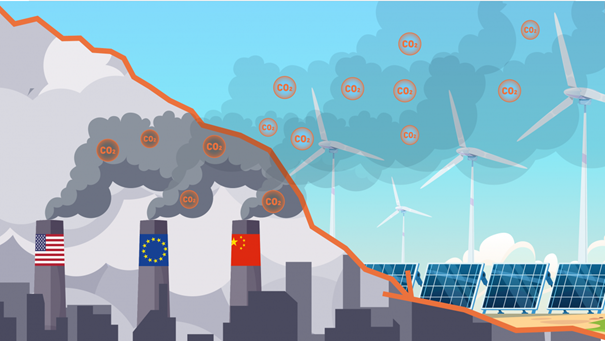Activities
22nd Foreign Policy Conference

Format
Topic
22nd Foreign Policy Conference, January 2022, online
After discussing the challenges of implementing Climate and Energy Partnerships at the 22nd Foreign Policy Conference 2022, GDL member Sabrina Schulz analysed the ideas and inputs presented by experts from the EU, the German Federal Government and the four partner regions in the paper “Climate and Energy Partnerships – Hype or Hope?”.
For the 22nd Foreign Policy Conference which took place in January 2022, the GDL once more cooperated with the Heinrich-Böll Foundation. This year, the topic “On the Way to Carbon Zero” was discussed in three different sessions. From the GDL, members Sabrina Schulz, Diego Osorio, Lina Li, among others, provided valuable input for the conference. All sessions were held in German and English.
On January 13, participants focused on transatlantic perspectives, specifically debating obstacles in domestic, industrial and trace policy to maximise chances of success for transatlantic climate neutrality. In the US, passing climate legislation is becoming more and more difficult with the current Senate. As a result, originally comprehensive climate protection packages need more and more stripping down. Whilst in the US, companies are being subsidised if they enforce climate protection, their European counterparts pay fees for carbon emissions. Further contributing to the imbalance are diverging climate policy instruments on both sides of the big pond. Read more about the prospects for a transatlantic climate alliance here.
For the second session on January 20, EU-China relations in a carbon-restrained world were on the agenda. Questions like whether cooperation with China on climate policy is possible while constraining the country in other policy areas (i.e. human rights and economic issues) at the same time were discussed in detail by the attendants. During the session, two main factors as drivers for more climate cooperation with China emerged. First, China remains a climate risk, particularly since interest in cooperation on climate protection has gone down on the Chinese side. Second, as China is one of the EU’s major competitors for climate economy, more cooperation on climate protection is needed. You can read about the recommended three elements of the EU’s climate strategy for China etc. here.
Green foreign policy was the topic for the last day of the conference on January 27. Especially since a new German government including the Green party has recently been formed, participants debated the question of how country’s climate policy impacts the regions most affected by climate change. As a case study, participants looked at the German-Indian relationship. By looking at this one bilateral relationship, it is possible to learn a lot about how developed and developing countries more broadly see the key issues of climate foreign policy. For further information, read the analysis of the session here.
The paper is available for download here. You can read up on key takeaways of last year’s 21st Foreign Policy Conference here.